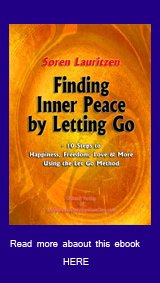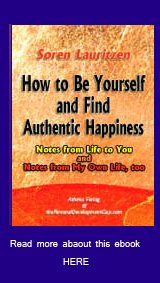Marshall Rosenberg – Pioneer in Non-Violent Communication
Marshall Rosenberg, PHD, is an accomplished author, speaker and crusader in bringing awareness to non-violent communication skills. Born October 6, 1934 to Jewish parents, his family relocated from Ohio to Michigan immediately prior to the race riots that happened when he was nine years old.
Moving to Michigan exposed Rosenberg to constant violence in different forms.
Rather than participate in the cultural norms around him, Rosenberg instead
decided to explore the causes and ways to have non-violent communication and
positive encounters. As a result, Marshall Rosenberg attended the University of
Wisconsin, where he earned his Ph.D. in 1961. By 1966, he earned the honor of
diplomat status through the American Board of Examiners in Professional
Psychology.
Over the years, Rosenberg has become one of the leading
experts among self help authors and personal development books. As his practice
grew, interest in non-violent communication training was birthed during the
civil rights movement in the 1960's. At this time, Rosenberg was a mediator
between the students who were rioting and the college administrators to help
make peaceful transitions during desegregation.
Marshall Rosenberg
ultimately founded the Center for Nonviolent Communication, where he is now
acting as the director of education services. Offices, located in Albuquerque,
New Mexico, continue to provide services to clients worldwide. His office
provides books, training and seminars for individuals, counselors, police
departments, educators, clergy, attorneys, health care providers and mental
health.
Perhaps Rosenberg's largest contributions have been the many
peace programs he has initiated in war torn areas internationally. Countries
such as Nigeria, Malaysia, Burundi, Indonesia, Sri Lanka, Serbia, Ireland and
the Middle East have been part of his outreach for furthering NVC. In 2006,
Rosenberg received the Bridge of Peace Non-violent Award for his efforts to
bring peaceful resolution and communication skills to war torn areas.
Rosenberg has authored multiple personal development books, offering self
improvement advice on a wide range of topics. His premises are based on ideas
from Neil postman, Carl Rogers, and Riane Eisler and others. His theory is that
people express feelings in terms of what has been done to us, and as a result
use unhealthy demands or coercion.
Personal development books by Rosenberg include specifically targeted audiences.
'Nonviolent Communication: A Language of Life'
is one of Rosenberg's books that teaches the basic premises of
nonviolent communication. In this book, Rosenberg offers
practical skills through insightful stories, role playing
exercises, anecdotes, and a new vocabulary. This book is
designed to be a simple introduction to nonviolent
communication, by offering tools to eliminate violence through
individual interactions. The ultimate goal is a peaceful life
because violence is eliminated.
This book also comes
with a companion workbook to help the reader identify areas
that need to be changed. Since there are many new concepts and
vocabulary words, this workbook is a great resource for a
chapter by chapter study.
'The Surprising
Purpose of Anger: Beyond Anger Management: Finding the Gift'
is one of the best tools available for understanding anger. As
Rosenberg says, "Anger can be a wonderful wake up call to help
you understand what you need and what you value". The premise
of this book is that anger stems from needs that are not being
met. The book teaches the best ways to handle anger, as well
as how to respond to others anger. There needs to be genuine
empathy when dealing with other people's anger as well. This
is a short read that offers a wealth of self improvement
advice out there that will transform lives. This is a perfect
starter book for those who don't want to read longer personal
development books.
'Raising Children
Compassionately: Parenting the Nonviolent Communication Way'
is a book designed to improve family dynamics. Much of
Rosenberg's philosophy is that punishment prevents us from
discovering the genuine need. When children (or adults) feel
they "should" do something, it creates resentment. NVC within
the family dynamic can help create a mutually respectful
family dynamic, with clear communication. It can also decrease
conflicts. The ultimate aim is for children to cooperate
without the threat of punishment, or the bribery of a reward.
'Practical Spirituality: The Spiritual Basis
of Nonviolent Communication' is based on
Rosenberg's belief that our "most basic spiritual need is to
contribute to the well being of others and ourselves". This
book uses the spiritual basis of NVC to help you connect to
yourself and others through empathy and compassion. This book
aims to help the reader achieved a practical, applied
spirituality. The reader will learn how to connect actions and
spiritual values, connect with others through compassion, and
to eliminate the traditional moral judgments against others to
find out common humanity.
'Speak Peace in a
World of conflict: What You Say Next Will Change Your World'
is a book that teaches that every conversation you have is an
opportunity to promote either peace, or violence. This book
demonstrates the power of language. The aim is to create a
peaceful planet by individuals taking the initiative to
develop an internal consciousness of peace, based on everyday
language.
This is not a "read it and leave it book". It is
an ongoing practice book to help realign mindsets to help
create a peaceful environment in every relationship. Whether
personal, professional or social, the words you say have
power, and picking the right words are important to facilitate
a better world.
Rosenberg uses stories and lessons that
he has accumulated in over 40 years of mediating conflicts
within some of the most violent, war torn parts of the world.
'Getting Past the Pain Between Us: Healing and
Reconciliation Without Compromise' is a short
book (only 48 pages), offering self improvement advice on
emotional pain. Whether it is the past abuse or not living up
to expectation, Rosenberg reveals that the emotional pain is
caused by unmet needs. In this book, he offers simple steps
that are necessary for conciliation, transformation of
relationships, and healing to occur. This book uses primarily
role play and examples for this goal. This book is a great
tool not only for counselors, but for families, couples and
individuals, as well as those working in the mental health
field.
Marshall Rosenberg Quotes
Perhaps the strongest message that Marshall Rosenberg strives to get across in his nonviolent communication methods include can be summed up in a few key quotes."Get very clear about the kind of world we would like and then start living that way."
~ Marshall Rosenberg Quotes ~
The above quote is one of the most revealing Marshall Rosenberg quotes. It places the responsibility on the individual to initiate change in communication and, well just about everything else, too, which ultimately impacts not only personal relationships, but business and social relationships as well.
"Understanding the other persons' needs does not mean you have to give up on your own needs."
~ Marshall Rosenberg Quotes ~
This is one of those quotes which speaks of the very, very important concept of human needs [LINK] and empowers the individual. (Being willing and able to identify and meet your own needs empowers you tremendously!) Even though we can actively emphasize with another person, we still must be aware of the things that we want and need, and take actions to make sure those needs are met.
"Nonviolent communication gives us tools and understanding to create a more peaceful state of mind."
~ Marshall Rosenberg Quotes ~
Finding inner peace is high on many people's list of wants, and even though his primary focus is on human communication, ultimately, Rosenberg wants his audience to work towards a more peaceful self, more peaceful relationship, and a more peaceful world. This starts inside each individual.
There are many resources with this tremendous speaker and author that can help the reader implement an understanding of nonviolent communication. The results are limitless, as the practice of thinking about your words carries power in every area of life.
Nonviolent communication is a strong basis for every relationship. It can be used alone, or in conjunction with counseling or outside issues to bring a more peaceful mindset to anyone who is willing to really try to reach their individual goals.
The Personal Development Guy's Self Improvement Ezine (FREE)
Would you like to keep in touch - and get high-level tips and special bonuses? Then please sign up for my self improvement newsletter The Personal Development Guy's Self Improvement Ezine. It is totally FREE.
I LOVE Your Support
If you've found the free personal development content on this website useful, please click the Donate button. Your donation will help me to keep producing free, high-level self improvement information. I am VERY GRATEFUL for your support!
Inspirational Quotes, Poems and Funny Short Stuff
If you want, you can also get your personal development, spirituality and general wisdom in an ultra light version - or even add your own wisdom to the site. Just go to the other sister of this website at:
- World's Best and YOUR Best Quotes, Poems and Short Funny Stuff
Quotescoop.com is also known as:
(http://www.inspirational-quotes-short-funny-stuff.com).
High-Level Positive Parenting Advice and Deep Insights
Positive Parenting Ally is the parenting equivalent of the Personal Development Guy. This is where you go if you want really deepen your understanding of parenting, empower your kids and make everyday life more easy and joyful.
Positive-Parenting-Ally.com
- Parenting advice for the conscious, open-minded parent!
Back to the top of this page about Marshall Rosenberg – Pioneer in Non-Violent Communication
Where Would You Like to Go Next?
To see what has been added to this site recently (plus offers, etc.), check out Blog & News at thePersonalDevelopmentGuy.comTo share your own short self improvement ideas, tips, musings, quotes, stories, spiritual jokes, etc. (and read the short ideas, etc. others have shared) jump to Shared Blog: Self Improvement Ideas
Jump to the Personal Development Guy Homepage
Jump to Self Help Books.
List of articles about self help books listed alphabetically: Alfred Adler, Barbara De Angelis, Maya Angelou Biography, Arjuna Ardagh, Richard Bandler, Brandon Bays, Alain de Botton, Gregg Braden, Brene Brown, Les Brown, Leo Buscaglia, Tony Buzan, Andrew Carnegie Biography, Carlos Castaneda, Pema Chodron, Deepak Chopra, Deepak Chopra Books Paulo Coelho, Stephen Covey, Peter Drucker, T. Harv Eker, Masary Emoto, Timothy Ferriss, Debbie Ford, Viktor Frankl, Mahatma Gandhi, Gangaji, Shakti Gawain, Kahlil Gibran, Daniel Goleman, Amit Goswami, Alex Grey, Stanislav Grof, David Hawkins, Louise Hay, Hermann Hesse, Esther Hicks and Jerry Hicks, Napoleon Hill, Susan Jeffers, C G Jung, Jon Kabat-Zinn, Byron Katie, Robert Kiyosaki, Bruce Lipton, Ramana Maharshi, J W Marriott, Abraham Maslow, John Maxwell, Drunvalo Melchizedek, Anthony de Mello, Anthony De Mello Quotes, Dan Millman, Bruce Moen, Robert Monroe, Michael Newton, Daniel Pink, Dave Ramsey, Ayn Rand Books, James Redfield, Cheryl Richardson, Anthony Robbins, Anthony Robbins Books Carl Rogers, Jim Rohn, Marshall Rosenberg, Geneen Roth, Don Miguel Ruiz, Robin Sharma, Barbara Sher, George Soros Biography, George Soros Quotes, Eckhart Tolle, Brian Tracy Books, Neale Donald Walsch, , Joe Vitale, Lyall Watson, Alan Watts, Stuart Wilde, Marianne Williamson, Larry Winget, Gary Zukav, Best Self Help Books, Self Help Books for Women,







